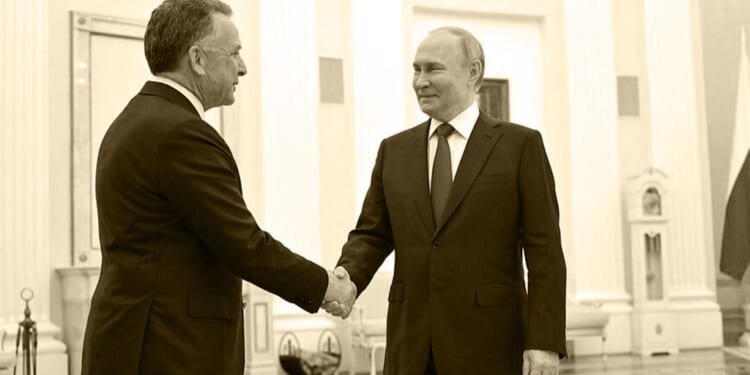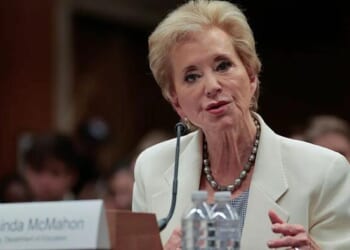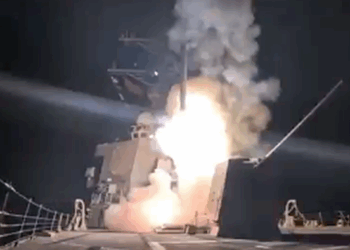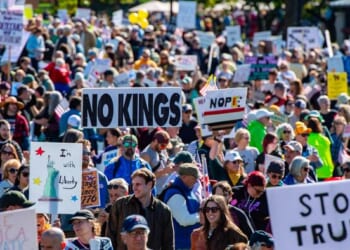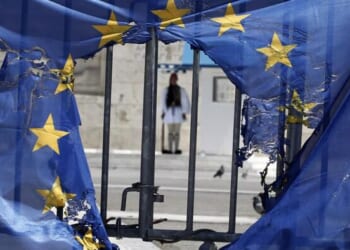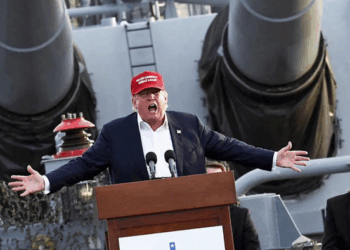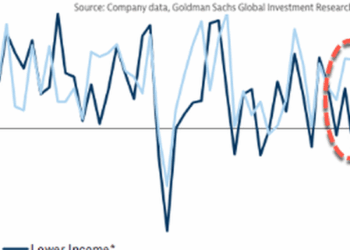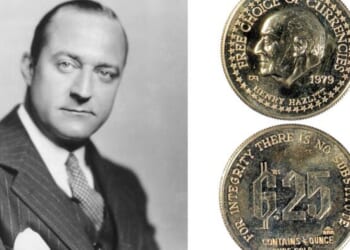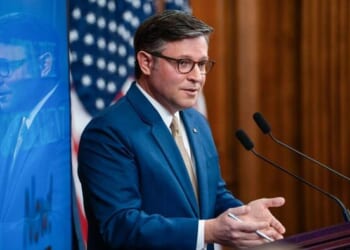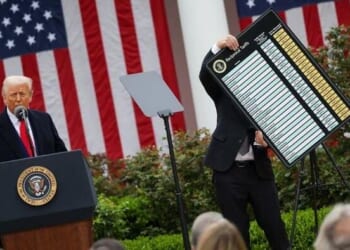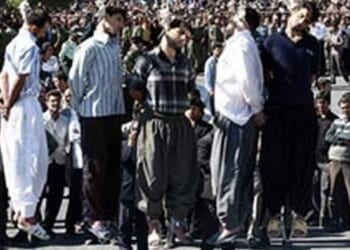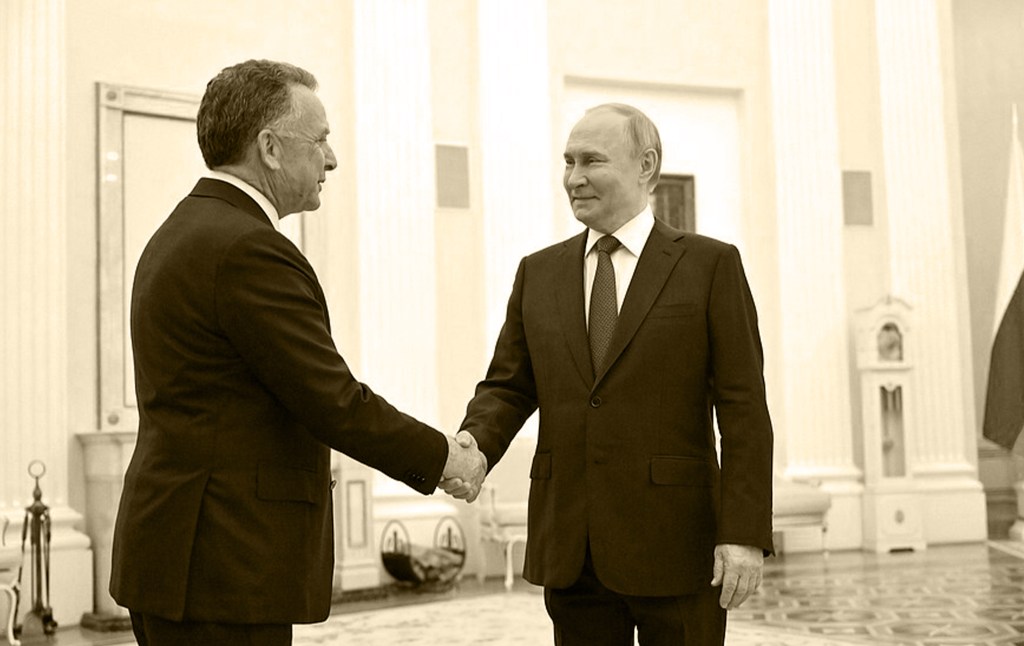
That’s my best guess at an explanation too. Three “rival factions” inside the White House collided over the Ukrainian peace proposal and made a mess of it. Too many cooks spoiled the broth.
Incompetence or sabotage?
The simplest explanation of the past five days is that the Trump White House operates so chaotically that its left hand doesn’t know what its right is doing, even on matters as grave as war and peace.
At last check, the president had no less than five emissaries working diplomacy with Ukraine and Russia, not including the U.S. ambassadors to those countries. There are Rubio and Witkoff, of course, plus retired Lt. Gen. Keith Kellogg. Jared Kushner has also been involved in talks, per Axios, as has Army Secretary Dan Driscoll, who was sent to Kyiv last week to pressure Volodymyr Zelensky to accept the U.S. (or is it Russian?) peace proposal.
Maybe they got their signals crossed, with Emissaries 1 and 2 forgetting to brief Emissaries 3, 4, and 5 on the latest developments. Never ascribe to malice what can adequately be explained by incompetence! But given that the secretary of state appears to have been one of those unbriefed emissaries, we’re either looking at a lofty-even-by-Trump-standards degree of incompetence or something closer to deliberate sabotage of Rubio’s influence over the process.
Axios alleges in a new story today that Witkoff and Kushner met with Russia’s envoy late last month to sound him out about Moscow’s demands, then met later with Ukraine’s national security adviser for his “input” and came away believing that Kyiv was receptive to the plan. (The Ukrainians say they thought the U.S. was merely sounding them out, not pushing anything formal.) Somehow it ended up in front of Trump, who approved it, and then Driscoll was dispatched to try to make Zelensky choke on it.
I can believe that. The details broadly corroborate Rubio’s tweet on Saturday, in fact. The peace proposal may be Russian in substance but it was “authored by the U.S.” in the sense that Witkoff and Kushner instigated and drove the process that made it a live diplomatic proposal.
What I can’t believe is that the secretary of state was “read-in every step of the way,” as one U.S. official told Axios. It’s impossible to square that with Rubio’s disparaging comments about the plan to Rounds and King and with his sudden, frantic, eleventh-hour diplomatic effort to revise the terms before the deadline. And it’s contradicted by other reporting: “Rubio hadn’t been fully looped in until late,” Bloomberg claims, adding that the president also wasn’t briefed on it until “the last minute.”
The White House has an obvious incentive to say that Rubio and Trump knew what was happening throughout the process even if it isn’t true. The administration doesn’t want to undermine the authority of the president and his top diplomat by making it seem as if they’re ignorant of what their deputies are doing under their own noses. That’s also why Rubio was keen to clarify that the peace proposal, however terrible, was authored by the U.S. He needs the world to know that he, not Vladimir Putin, is in charge of U.S. diplomacy even when America’s demands for peace bear a suspicious resemblance to Russia’s.
So, no, I don’t think Rubio was “read-in every step of the way.” And if I’m right, why wasn’t he?
Not even Trump’s outfit could be so incompetent that all players involved “forgot” to brief the secretary of state on the gory details of this momentous proposal until it was on Zelensky’s desk. It feels simply too coincidental that Rubio, the most hawkish figure in the Cabinet and therefore someone destined to oppose the terms, was kept in the dark about it until it had real momentum.
Who would have the means, motive, and opportunity to try to ram through this peace proposal before the secretary of state could scuttle it?
Marco and J.D.
Inevitably fingers are pointing at the vice president, the least hawkish figure in the Cabinet.
J.D. Vance seems like a too-convenient suspect in this case, a perfect patsy for the peace-plan snafu because of his antipathy to Ukraine and its partners. He admitted when the war broke out that he didn’t care if the country survived and ring-led the ambush of Zelensky in the Oval Office in February. He’s also criticized America’s European allies publicly and privately, befitting his status as the Great Postliberal Hope. If you’re looking inside the West Wing for someone predisposed to seize an opportunity to end the war ASAP on terms favorable to Russia, you’d naturally look at Vance.
And that opportunity has now presented itself in the corruption scandal embroiling Zelensky’s political allies at home. “The Ukrainians will have to accept [the deal] given the weakness of Zelenskyy’s current position,” an unnamed senior U.S. official told Politico of the corruption scandal in which Ukraine’s president is submerged.
But the case against Vance is based on more than his worldview. Citing two sources in the know, CBS News’ Margaret Brennan alleged on Sunday that the VP is “a driving force behind the Ukraine diplomacy.” Dan Driscoll’s unexpected cameo in the process is further evidence, as he and Vance are good friends. (“The alarm went off” in European diplomatic circles when a Vance crony got involved in negotiations, per Bloomberg.) And when Zelensky phoned the White House on Friday to discuss the peace plan, he spoke not with Trump or Rubio but with the vice president.
If Moscow ends up surprising everyone by agreeing to a proposal that includes a 10-year U.S. security guarantee for Ukraine, I assume it’ll do so only because there’s a solid probability that J.D. Vance will be directing American foreign policy for some of those 10 years. President Vance isn’t sending troops to help defend Europe from conquest by postliberals, commitment or no commitment, and the Russians know it.
So if we want to speculate irresponsibly but not outlandishly about how the great peace-plan mess came about, we might tell a story like the following. After Witkoff and Kushner received Russia’s list of demands and consulted with Ukraine about it, Vance and other like-minded doves in the White House liked what they saw and brought it to Trump with a recommendation that he formalize it as a U.S. offer to jam the scandal-weakened Zelensky with it. Trump agreed because he doesn’t care about the terms of peace, only that he’s seen as a peacemaker.
The plan was then quickly leaked to Axios, locking the U.S. into its now-public terms—or so the dovish leakers hoped—and Vance chum Driscoll jetted off to Kyiv with a message to Zelensky to take it or leave it. At this point Rubio realized what was happening and began voicing his discontent to figures like Rounds and King. And at some point shortly after, Trump got enough of an earful from the secretary of state, congressional Republicans, and European leaders about what a rotten betrayal the proposal was that he agreed to let Rubio fly to Geneva and try to improve the product.
That’s just a theory, but I’ll bet it’s what Trofimov’s diplomatic source had in mind when he complained of “rival factions of the U.S. government” keeping policy secrets from each other “as the succession battle for 2028 begins.” Vance and Rubio are the two most formidable contenders in the GOP’s succession battle; Vance is postliberal, isolationist, and anti-European whereas Rubio is Reaganite(-ish), interventionist, and Atlanticist. Their two camps have coexisted uneasily over foreign policy so far but as 2028 approaches we might see more attempts by each to outmaneuver or sabotage the other to gain advantage.
Maybe Vance assumed that, with Rubio preoccupied with running the show on Venezuela, he could sideline him on Ukraine and force Zelensky to capitulate before Republican hawks could scramble to avert it. Instead they and their allies are now both at the stove trying to cook up a peace deal in eastern Europe and spoiling the broth in the process.
Which brings us to the head chef.
Trump’s agenda.
I said earlier that there are three factions involved in this peace-plan debacle. One is the Atlanticists, the second is the postliberals, and the third, of course, is Trump, a party of one.
The Atlanticists aim to weaken Russia, the postliberals aim to weaken Europe, and the president just wants a deal no matter what it looks like.
Don’t take my word for it. “You tell him, ‘I’m going to try to get a deal.’ He will say, ‘Great, go see what you can do.’ And that’s the level of detail he has,” a frustrated U.S. official told the Washington Post of Trump’s involvement, later adding, “It’s been absolute chaos all day because even different parts of the White House don’t know what’s going on. It’s embarrassing.”
The president doesn’t care how the war ends as long as he gets to boast that he kept his campaign promise and ended it. It’s the only way I know how to explain how he went from squeezing Russia a month ago to squeezing Ukraine today. He’ll squeeze whichever side he thinks is more likely to burst from the pressure at a given moment. Unlike the Atlanticists and postliberals, he’s indifferent to the outcome of the war or the justness of any peace that’s struck.
Because there’s no vision—or recipe, if we want to torture the analogy a bit more—the two rival foreign policy factions keep convincing him to add or subtract ingredients to the peace process depending on what seems most likely on a particular day to bring the war to a rapid conclusion. If Russia is suffering from an oil crisis, Trump will ramp up sanctions on Russian oil to try to force them to the table. If Zelensky is suffering from scandal, Trump will hand him a menu of Putin demands with a warning that he needs to swallow them by Thursday.
The president’s position is so vacuous that America’s own diplomats don’t seem to know what will happen if Ukraine ends up rejecting the deal the White House has offered. It’s assumed that Trump will respond by cutting off intelligence-sharing and weapons sales; that’s certainly how Zelensky understood the ultimatum. But when Mike Rounds asked Rubio about it, the secretary of state once again was in the dark. “He told me … he was not aware of that threat being made,” the senator said of their conversation.
Trump himself might not know what will happen. Clearly his highest priority in this process is cultivating his reputation as a leader who can end seemingly intractable conflicts, like in Gaza. But given the toxic reaction to the Witkoff-Kushner plan, his reputational calculus may suddenly have changed: You’re not going to get a Nobel by forcing Ukraine to commit national suicide, Rubio or some other hawk may have explained to him. In the same way that the president belatedly decided that the original proposal wasn’t a “final offer” after all, he might decide that abandoning Ukraine to its fate by cutting off all U.S. assistance isn’t in his interest either.
Just the fact that he’s thinking about cutting Kyiv off is remarkable, frankly. This must be the first time in 79 years of life that he’s turned down an opportunity to make a buck, in this case billions of them from Europe in exchange for American armaments for Ukrainian use. If ever there were a president you’d think would relish being a war profiteer, it’s Trump; the fact that he might sacrifice that economic opportunity in the name of forcing a Ukrainian surrender goes to show how invested his ego is in “peace.”
Which isn’t to imply that his motives are entirely reputational. He’s planning a war of his own right now in South America, remember, and presumably would like to turn his undivided attention to it by clearing his inbox of all things Ukraine. Or maybe his chronic petulance toward Zelensky and longstanding admiration for Putin keeps drawing him back toward an anti-Ukraine stance amid his sporadic bursts of annoyance at Russia.
But ultimately it probably isn’t much more complicated than that he promised peace and wants to use American leverage to keep that promise irrespective of what that might mean for the national interests of the two combatants. Marco Rubio and J.D. Vance each have rooting interests in the war, but Trump’s rooting interest, as always, is himself. Whenever his personal political interest in a foreign dispute is unclear and complicated, as it is in Ukraine, the risk of him suddenly reversing himself and making a hash of his own policy is, and will remain, high. Which bodes pretty poorly for the big adventure in Venezuela.

